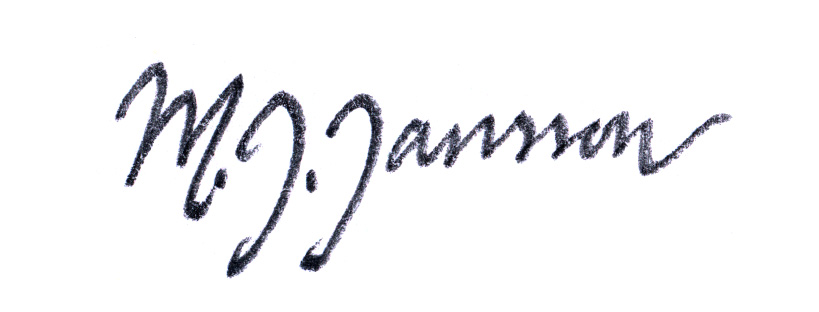
M.J. Jansson
Skriver fiktion i olika former och genrer.
Mitt skrivande rör sig mellan olika former och genrer – från korta berättelser till längre projekt, ibland för barn, ibland för vuxna. Här delar jag med mig av min resa som skrivande person: texter, reflektioner och pågående projekt.
Följ gärna med på vägen genom berättelser och skapande.
Läs mina uppdateringar